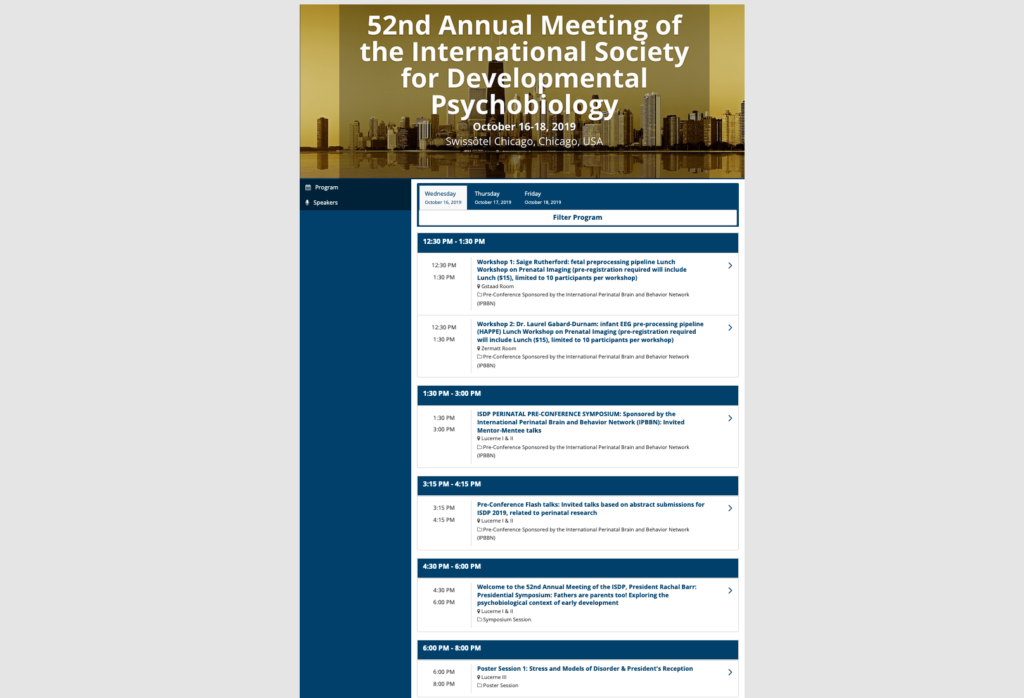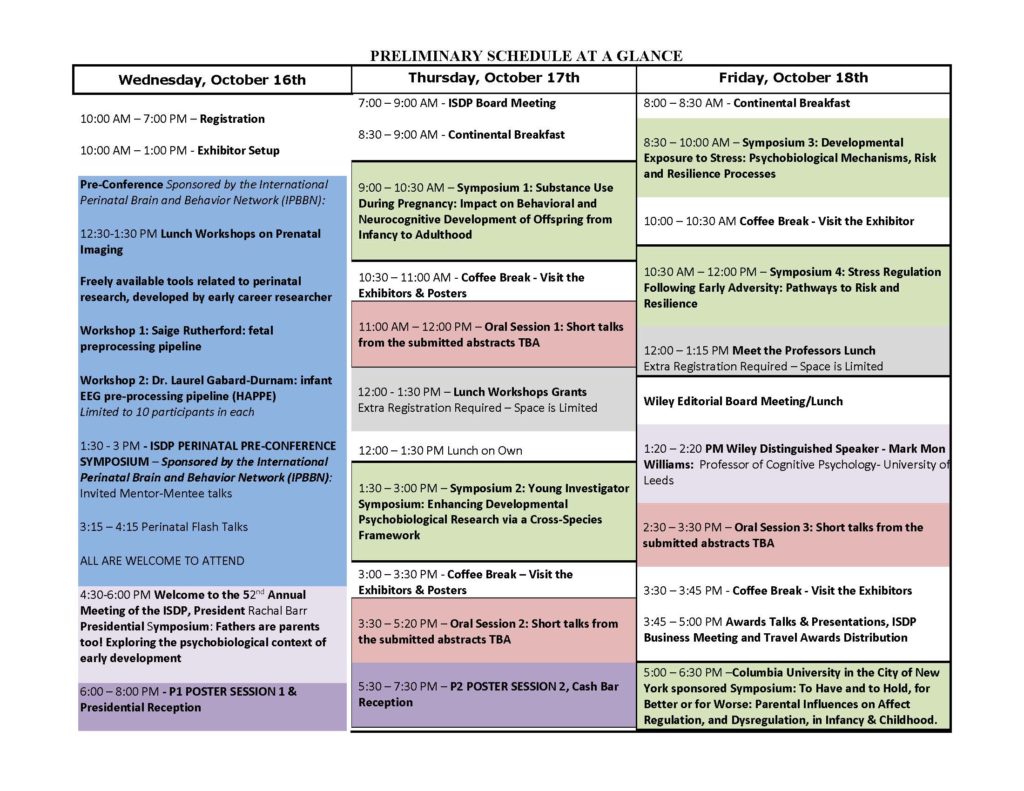Presidential Symposium:
Fathers are parents too: Exploring the psychobiology of fatherhood
- The Psychobiology of Father-Infant Relationships, Brenda L. Volling, PhD, Center for Human Growth & Development, University of Michigan, USA Read More
This talk will focus on recent findings linking the quality of early father-infant relationships to hormonal changes in father’s testosterone in response to stress, in addition to the role of a secure father-infant attachment relationships for infant stress reactivity.
- Becoming Dads: How Comparative Perspectives Help Us Understand Men’s Hormones, Behavior, and Health as Fathers, Lee T. Gettler, PhD, Department of Anthropology, University of Notre Dame Read More
Human fathers shape their children’s well-being through a range of parenting behaviors. While common for humans, this is rare for mammals. This talk will shed light on how thinking about dads evolutionarily and across cultures helps us understand fathers’ roles, biology as parents, and health.
- Imaging the neural response to predatory fear in prairie vole fathers, Jason R. Yee, Ph.D, Institute of Animal Husbandry and Welfare, Veterinary Medical University of Vienna Read More In obligate biparental species mammalian fathers play a complementary role to the mother, and lacking nursing duties, are well-positioned to aid offspring survival by assessing and handling potential threats. This project examines the role of fatherhood in modulating the neural response to predatory life threat in socially monogamous and biparental prairie voles.
- More than money: Fathers’ contributions to child development in the early years, Natasha J. Cabrera, PhD, Department of Human Development and Quantitative Methodology, University of Maryland Read More Dr. Cabrera will talk about the research she has been doing using observational data of father-child dyads to understand the unique effect that fathers have on their children’s cognitive and social development in the early years
Wiley Distinguished Speaker:
- Mark Mon Williams: Professor of Cognitive Psychology- University of Leeds
Born in Bradford Project Read More
![]()
Perinatal Pre-Conference Symposium
Sponsored by the International Perinatal Brain and Behavior Network (IPBBN)
WEDNESDAY, OCTOBER 16, 2019, Swissôtel Chicago, Chicago, USA
Preceding ISDP 2019
PROGRAM:
[12:30-13:30] – Lunch workshops: (pre-registration required will include Lunch ($15), limited to 10 participants per workshop)
Freely available tools related to perinatal research, developed by early career researcher
- Workshop 1: Saige Rutherford: fetal preprocessing pipeline
- Workshop 2: Dr. Laurel Gabard-Durnam: infant EEG pre-processing pipeline (HAPPE)
[13:30-15:00] – (open to all participants of ISDP 2019): Mentor-mentee talks: Mentors and their mentee provide a talk together (30 min total). Mentor starts with introducing the project and their mentee (10 minutes), mentee presents their work (10 minutes), then discussion/questions (10 minutes).
[15:00-15:15] – Short coffee break
[15:15-16:15] – Flash talks: Invited talks based on abstract submissions for ISDP 2019, related to perinatal research. Preference will be given to early career researchers.
![]()
.
[/et_pb_text][/et_pb_column][/et_pb_row][/et_pb_section][et_pb_section fb_built=”1″ _builder_version=”3.22.7″ custom_padding=”||20px|||”][et_pb_row custom_margin=”-7px|auto||auto||” _builder_version=”3.25″][et_pb_column type=”4_4″ _builder_version=”3.25″ custom_padding=”|||” custom_padding__hover=”|||”][et_pb_text _builder_version=”3.26.4″ link_option_url=”https://isdp.org/wp-content/uploads/2019/06/Program-At-a-Glance-ISDP-2018-Sept-18-FINAL.pdf”][/et_pb_text][/et_pb_column][/et_pb_row][/et_pb_section][et_pb_section fb_built=”1″ _builder_version=”3.22.3″ custom_margin=”0px||0px|” custom_padding=”0px||0px|”][/et_pb_section]


